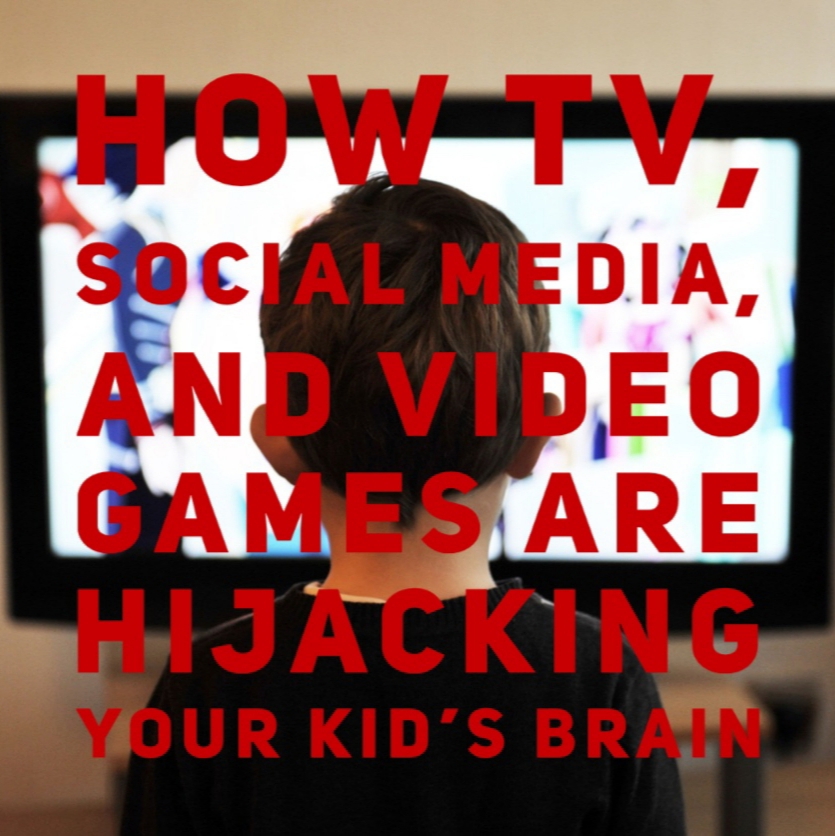How TV, Social Media, and Video Games Are Hijacking Your Kid's Brain
Today one of my friends lamented that her 7-year-old daughter Mikayla (not her real name) is pretty much addicted to YouTube and video games. Apparently, Mikayla stays up late at night to play games/watch videos and frequently ends up missing school because she didn't get enough sleep. Also, she throws a tantrum whenever her mom tries to take away her computer.
I was saddened but not surprised. I experienced video game addiction when I was Mikayla's age. People often seem shocked that young kids are falling prey to these addictions, but I'm not surprised at all. Children are easily influenced, and the modern trend of permissive parenting leaves them vulnerable.
In small doses, video games and other media can actually benefit your child. For example, video games can improve memory and spatial skills. But keep in mind that TV shows, social media, and video games are designed to be addictive. After all, companies can't make money unless they keep you coming back.
However, it's not the video game company's job to set limits on your kid's screentime. It's yours. If your child doesn't obey your rules about screentime, then consequences should be enforced. Also, sometimes it's necessary to let natural consequences play out. I told my friend that next time Mikayla stays up late playing on the computer, she needs to go to school anyway. It might sound harsh, but it'll help her understand why she needs to limit screentime.
When I was a kid, my parents had to set firm limits on screentime. At first I thought they were being unfair, but now I'm grateful that they enforced the rules. Here are 6 rules that I think every family should have for kids' screentime:
1. No TV, video games, etc. within an hour of bedtime. (Electronics can affect a person's sleep cycle.)
2. No TV, video games, etc. until you've done your homework and chores.
3. No Internet-accessing devices in bedrooms/bathrooms. Cell phones and computers are to be used in common areas of the house (such as the living room) where kids can easily be supervised.
4. No Facebook, Pinterest, etc. until age 13. (Most social media websites have a policy that you have to be at least 13 to create an account.)
5. No electronics at dinnertime. Actually talk and listen to your family.
6. If an adult tells you to turn off/put away your device, you will do it immediately, politely, and without complaining. Electronics are a privilege, not a right.
When it comes to electronics and media, moderation is key. They can be addictive, but they shouldn't be banned outright. Instead, teach your children to have good values and self-control so they'll be able to make wise choices when they're adults.
"For the grace of God has appeared that offers salvation to all people. It teaches us to say 'No' to ungodliness and worldly passions, and to live self-controlled, upright and godly lives in this present age" (Titus 2:11-12).

Comments
Post a Comment